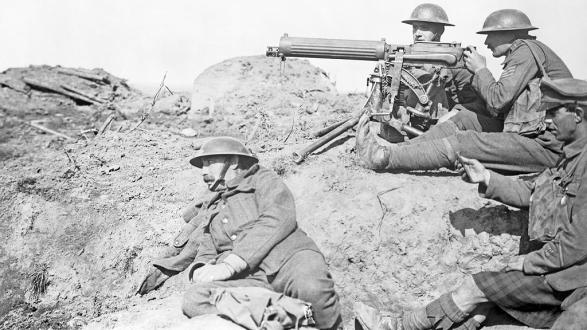November 11 marked one hundred years since the end of the First World War — the “Great War,” the war to end all wars, as many hopefully imagined. The last few years have seen the rise of new dangers, or rather the return of old ones. From resurgent nationalism to the revival of great power competition, we confront disturbing echoes from an earlier age. Taken together they are a stark warning about the dangers of complacency and the fragility of the global order.
Complacency is a durable risk factor in international relations.
Three lessons stand out from 1914–1918 and its aftermath. First, and most obvious is the sheer fragility of apparently stable relationships. In 1914, the European order — and the European order was for all intents and purposes the global order — went from relative stability to complete collapse in a period of weeks. And this was at a time when diplomacy and communications were far slower than today. True, the signs of instability were there for those who cared to look. Dynastic leadership had been under threat from liberal and other forces for at least a century, and these forces could be aggressively nationalistic.
From resurgent nationalism to the revival of great power competition, we confront disturbing echoes from an earlier age. Taken together they are a stark warning about the dangers of complacency and the fragility of the global order.
Continuous competition on the colonial periphery always risked undermining stability inside Europe. Developments in military technology and mobilization based on railways and mass conscription were seen as deterrents. In the event they proved highly destabilizing. Revolutionaries aside, leaderships across Europe, some vested in the established order, others bent on changing it, shared similar assumptions about the inherent stability of the system. They were wrong. Complacency is a durable risk factor in international relations.
The descent into conflict in 1914 made clear that economic interdependence is no guarantee of stability.
The second lesson concerns the uncertain relationship between economics and conflict. The years before the war were characterized by a high degree of economic interdependence and relatively unfettered freedom of movement across borders. This was widely assumed to be a factor of stability. Wars did not “pay,” therefore wars would not be fought. This, too, proved wrong. The war set in motion economic crises across Europe, and the outcome of the war fueled the perception that the ability to inflict and resist economic harm was and would remain decisive. The wartime experience of economic blockade and counter-blockade had an enormous influence on strategic thought after 1918. Between the two world wars every major power, including the United States, created economic warfare establishments. That concern about the exposure of societies to collapse in the face of attacks on trade and finance has obvious echoes in today’s fears over digital security.
The descent into conflict in 1914 made clear that economic interdependence is no guarantee of stability. But the interwar cycle of protectionism also underscored the ability of economic nationalism to undermine it. The First World War set the stage for a deterioration of trade, political and, ultimately, strategic relationships. It is a lesson about the perils of economic policy decoupled from geopolitics.
That concern about the exposure of societies to collapse in the face of attacks on trade and finance has obvious echoes in today’s fears over digital security.
Finally, 1918 marks one hundred years of an American pivot to Europe. The First World War confirmed the essential link between European security and American power. America’s entry into the war in 1917, the role of American finance in the Allied war economy, and Washington’s central role in shaping the peace, established an enduring strategic link. It is a bond that has resisted isolationist pressures for the simple reason that U.S. commitments in Europe reflect America’s own national interest in the security of the continent.
These lessons are worth pondering. They are a sobering reminder about the dangers of complacency, nationalism and a cavalier approach to alliance relationships.
________________________
Ian Lesser is a Pacific Council member and the Vice President of Foreign Policy and Executive Director of the Transatlantic Center at the German Mashall Fund of the United States.
The views and opinions expressed here are those of the author and do not necessarily reflect the official policy or position of the Pacific Council.




